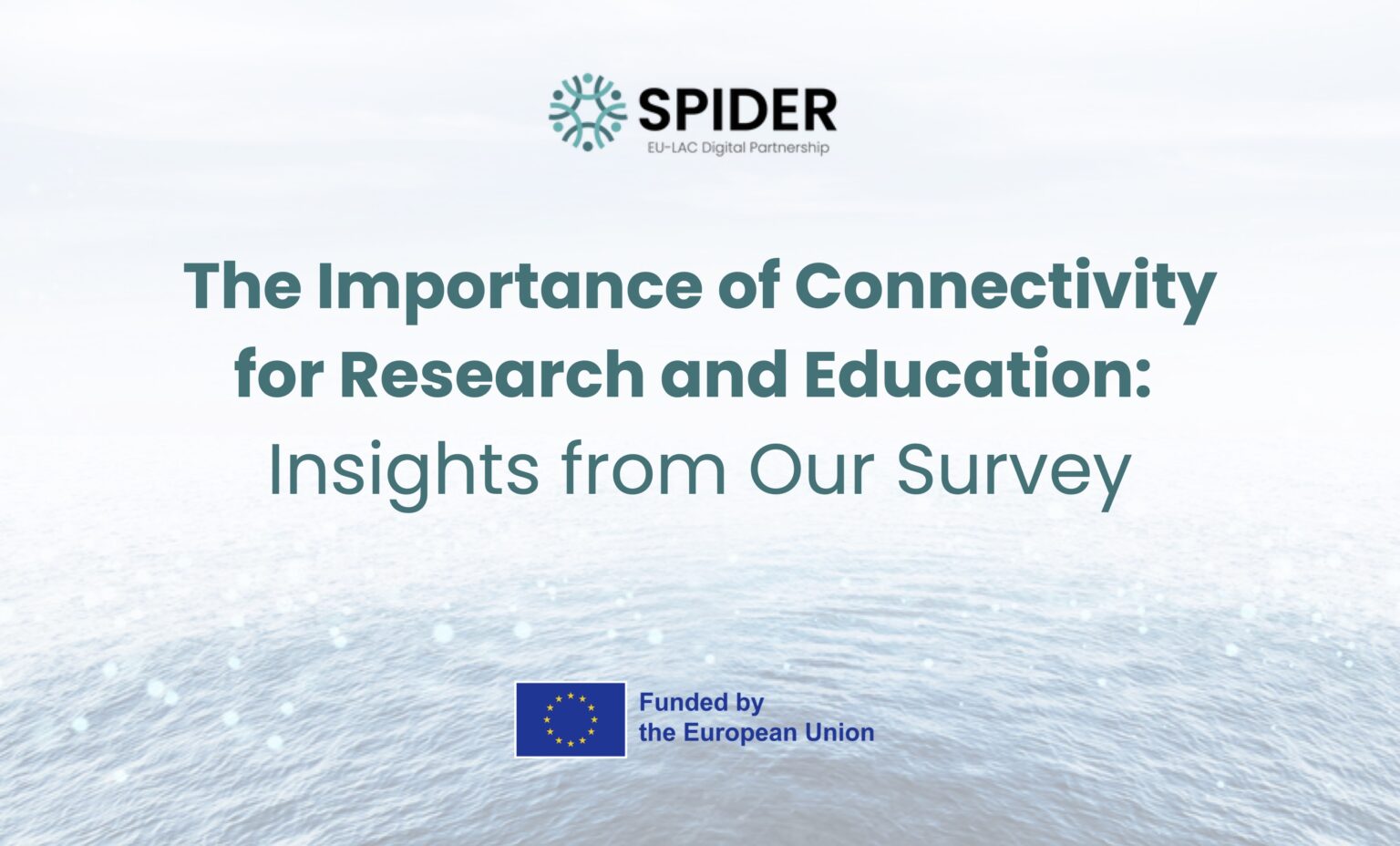As the digital landscape continues to evolve rapidly, connectivity has become a fundamental enabler of progress in research and education. The ability to collaborate across borders, access vast digital resources, and leverage advanced technologies depends heavily on reliable and high-speed internet connections. This is particularly true for Latin America and the Caribbean (LAC), and Europe, where digital infrastructure is crucial in fostering innovation and driving economic and social development.
To better understand the current state of digital connectivity and its impact on research and education, we conducted an extensive survey across LAC and Europe. The survey, aimed at evaluating the potential of the BELLA Infrastructure, gathered insights from 357 respondents, with 79.55% from LAC and 20.45% from Europe. These respondents represented a diverse range of organizations, including universities, research institutions, government bodies, and private enterprises.
The majority of participants were from public and private universities, comprising 60.51% of the total responses, highlighting the strong representation of the academic sector. Additionally, 68.35% of the respondents came from large organizations with over 250 employees, emphasizing the significant scale at which digital connectivity impacts operations. The survey also included perspectives from IT professionals, professors, researchers, directors, and managers, providing a comprehensive view of the current digital ecosystem across various roles and sectors.
Below, we summarize the key findings of the survey and explore the implications for the future of research and education in these regions.
Key Findings:
High-Speed Internet is Essential:
- 85.2% of respondents across LAC and Europe consider high-speed internet crucial for their daily activities. This underscores the importance of reliable and fast connectivity in driving research and business operations.
- Despite this, satisfaction with internet services varies, with LAC showing slightly lower satisfaction levels (average 3.02 out of 4) compared to Europe (average 3.52).
Increasing Demand for Remote Research Infrastructures:
- A majority of participants (59.21%) across both regions need access to research infrastructures or computing resources remotely hosted by research organizations. Cloud computing services are also highly valued, with 73.72% indicating they rely on cloud providers for various activities.
- The survey highlights significant usage of cloud services from providers like AWS, Google Cloud, and Microsoft Azure, reflecting a growing trend toward flexible, scalable digital solutions.
Mixed Awareness and Usage of NRENs:
- A critical barrier identified is the lack of awareness about National Research and Education Networks (NRENs). Over 53% of respondents reported limited or no familiarity with NRENs, despite their potential to enhance connectivity and collaboration.
- Notably, 40.74% of European respondents reported consistent usage of NREN services, compared to 22.83% in LAC, indicating a disparity in the integration of NREN infrastructure into regional operations.
BELLA’s Potential for Digital Transformation:
- Respondents recognize BELLA’s capacity to foster collaboration and enhance connectivity, particularly in areas like High-Performance Computing, Cloud Computing, and Artificial Intelligence. These technologies are seen as pivotal in advancing digital transformation efforts across research and education sectors.
- However, 73.24% of respondents cited a lack of awareness as a significant barrier to leveraging BELLA’s full potential. Additionally, financial constraints, particularly in LAC, and technical limitations further hinder BELLA’s adoption.
Regional Disparities and Challenges:
- LAC respondents showed a stronger emphasis on accessing advanced technologies through BELLA, with 58.43% highlighting this benefit compared to 36.17% in Europe.
- Financial and technical limitations were more pronounced in LAC, while European respondents expressed concerns around security and policy usage, indicating different regional challenges that need tailored solutions.
The survey emphasizes the critical role of connectivity in enabling research and education across LAC and Europe. While there is strong recognition of the need for high-speed internet and remote research infrastructures, barriers such as limited awareness, financial constraints, and technical challenges persist. The BELLA infrastructure holds significant potential to drive digital transformation, but its full utilization requires targeted strategies to enhance awareness, address budgetary constraints, and ensure secure, efficient use of the network.
As we move forward, bridging these gaps will be essential for fostering collaboration, advancing research, and ensuring that educational institutions across both regions can fully harness the opportunities offered by enhanced digital connectivity.
To learn more about the survey findings and how connectivity is shaping the future of research and education, click here.







